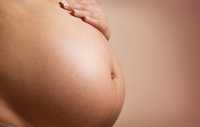Author Interviews, OBGYNE, Sexual Health / 25.08.2022
Study Evaluates Sexual Health After Caesarean Vs Vaginal Delivery
MedicalResearch.com Interview with:
Florence Z. Martin
MRC Integrative Epidemiology Unit
Population Health Sciences
Bristol Medical School
University of Bristol, Bristol, UK
MedicalResearch.com: What is the background for this study?
Response: Globally, rates of caesarean section are on the rise. Many things are contributing to this, including increasing maternal age, more women who have had prior caesareans, and changes in maternal preference. One reason that women have been cited to choose a caesarean in an uncomplicated pregnancy is the maintenance of sexual wellbeing postpartum (in other words, after their baby is born). The protection of sexual wellbeing following caesarean section is thought to be via the maintenance of vaginal tone and reduced risk of vaginal tearing.
However, few studies have shown this to be true. Some studies investigating sexual outcomes in the year after birth found no difference between women who gave birth vaginally and those who delivered via caesarean section. Longer term evidence is sparse, with only one study looking up to 16 years postpartum and finding that women who give birth to all their children via caesarean section are at higher risk of experiencing sex-related pain.
To contribute to previous studies and provide the first piece of evidence looking at sexual wellbeing as a whole several years after delivery, we used data from the Children of the 90s study (also known as the Avon Longitudinal Study of Parents and Children or ALSPAC). We aimed to compare sexual enjoyment, sexual frequency, and sex-related pain between women who delivered via caesarean section and those who delivered vaginally up to 18 years postpartum.
(more…)

